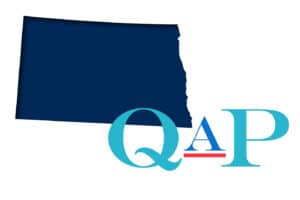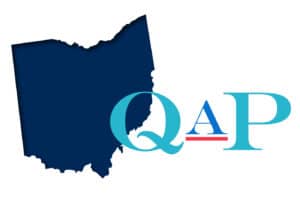Last week Governor Gavin Newsom signed 26 housing bills ranging from statewide rent control, the creation of a state historic tax credit, a prohibition on source of income discrimination for voucher holders, streamlined permitting and approval processes, encouragement of accessory dwelling units and resident eviction protocols.
- SB 6 by Senator Jim Beall (D-San Jose) requires the state to create a public inventory of local sites suitable for residential development, along with state surplus lands.
- SB 13 by Senator Bob Wieckowski (D-Fremont) creates a tiered fee structure, which charges ADUs more fairly based on their size and location. The bill also addresses other barriers by lowering the application approval timeframe, creating an avenue to get unpermitted ADUs up to code, and enhancing an enforcement mechanism allowing the state to ensure that localities are following ADU statute.
- AB 68 by Assemblymember Philip Ting (D-San Francisco) makes major changes to facilitate the development of more ADUs and address barriers to building. The bill reduces barriers to ADU approval and construction, which will increase production of these low-cost, energy-efficient units and add to California’s affordable housing supply.
- SB 113 Senator Benjamin Allen (D-Los Angeles) enables the transfer of $331 million in state funds to the National Mortgage Special Deposit Fund and establishes the Legislature’s intent to create a trust to manage these funds to provide an ongoing source of funding for borrower relief and legal aid to vulnerable homeowners and renters.
- AB 116 by Assemblymember Philip Ting (D-San Francisco) removes the requirement for Enhanced Infrastructure Financing Districts (EIFDs) to receive voter approval prior to issuing bonds.
- SB 196 by Senator Jim Beall (D-San Jose) enacts a new welfare exemption from property tax for property owned by a Community Land Trust (CLT) and makes other changes regarding property tax assessments of property subject to contracts with CLTs.
- SB 222 by Senator Jerry Hill (D-San Mateo) underscores that housing discrimination on account of military or veteran status is unlawful in California by explicitly stating so within the Fair Employment and Housing Act (FEHA). In addition, by defining a Veterans Affairs Supportive Housing (VASH) voucher as a source of income for purposes of FEHA, the bill prohibits landlords from discriminating against a tenant on the basis that the tenant pays part or all of the rent using a VASH voucher.
- SB 329 by Senator Holly Mitchell (D-Los Angeles) prohibits landlords from discriminating against tenants who rely upon housing assistance paid directly to landlords, such as a Section 8 voucher, to help them pay rent.
- SB 330 by Senator Nancy Skinner (D-Berkeley) establishes the Housing Crisis Act of 2019, which will accelerate housing production in California by streamlining permitting and approval processes, ensuring no net loss in zoning capacity and limiting fees after projects are approved.
- SB 451 by Senator Toni Atkins (D-San Diego) creates a $50 million per year State Historic Tax Credit for 20 percent of qualified rehabilitation expenditures (QREs), with an increase to 25 percent of QREs that meet certain criteria, including affordable housing. The credit will be in effect from 2021 through 2025 and will require annual appropriations from the legislature.
- AB 587 by Assemblymember Laura Friedman (D-Glendale) provides a narrow exemption for affordable housing organizations to sell deed-restricted land to eligible low-income homeowners.
- SB 644 by Senator Steven Glazer (D-Orinda) lowers the amount that a landlord can charge service members for a security deposit on residential rental housing.
- AB 671 by Assemblymember Laura Friedman (D-Glendale) requires local governments’ housing plans to encourage affordable ADU rentals and requires the state to develop a list of state grants and financial incentives for affordable ADUs.
- SB 751 by Senator Susan Rubio (D-Baldwin Park) creates the San Gabriel Valley Regional Housing Trust to finance affordable housing projects for homeless and low-income populations and address the homelessness crisis in the region.
- AB 881 by Assemblymember Richard Bloom (D-Santa Monica) removes impediments to ADU construction by restricting local jurisdictions’ permitting criteria, clarifying that ADUs must receive streamlined approval if constructed in existing garages, and eliminating local agencies’ ability to require owner-occupancy for five years.
- AB 1010 by Assemblymember Eduardo Garcia (D-Coachella) will allow duly constituted governing bodies of a Native American reservation or Rancheria to become eligible applicants to participate in affordable housing programs.
- AB 1110 by Assemblymember Laura Friedman (D-Glendale) requires landlords to give 90 days’ notice to a tenant before imposing rent increases of more than ten percent.
- AB 1255 by Assemblymember Robert Rivas (D-Hollister) requires cities and counties to report to the state an inventory of its surplus lands in urbanized areas. The bill then requires the state to include this information in a digitized inventory of state surplus land sites.
- AB 1399 by Assemblymember Richard Bloom (D-Santa Monica) closes a loophole in the Ellis Act wherein landlords evict all the tenants from rent-stabilized units in a property, claiming they are leaving the rental market, when they have no plans for the property and are actually trying to raise rent in the stabilized units. The bill clarifies that once any unit is returned to the rental market, the entire property is considered back on the rental market.
- AB 1482 by Assemblymember David Chiu (D-San Francisco) establishes a five percent annual rent cap, plus inflation, coupled with just-cause protections.
- AB 1483 by Assemblymember Tim Grayson (D-Concord) requires local jurisdiction to publicly share information about zoning ordinances, development standards, fees, exactions, and affordability requirements. The bill also requires the Department of Housing and Community Development to develop and update a ten-year housing data strategy.
- AB 1485 by Assemblymember Buffy Wicks (D-Oakland) will build on an existing environmental streamlining law and encourage moderate-income housing production.
- AB 1486 by Assemblymember Philip Ting (D-San Francisco) expands Surplus Land Act requirements for local agencies, requires local governments to include specified information relating to surplus lands in their housing elements and annual progress reports (APRs), and requires the state Department of Housing and Community Development (HCD) to establish a database of surplus lands, as specified.
- AB 1487 by Assemblymember David Chiu (D-San Francisco) establishes the Bay Area Housing Finance Authority, which will increase affordable housing by providing for enhanced funding and technical assistance at a regional level for new affordable housing production, affordable housing preservation and tenant protection.
- AB 1743 by Assemblymember Richard Bloom (D-Santa Monica) expands the properties that are exempt from community facility district taxes to include properties that qualify for the property tax welfare exemption and limits the ability of local agencies to reject housing projects because they qualify for the exemption.
- AB 1763 by Assemblymember David Chiu (D-San Francisco) creates more affordable housing by giving 100 percent affordable housing developments an enhanced density bonus to encourage development.



